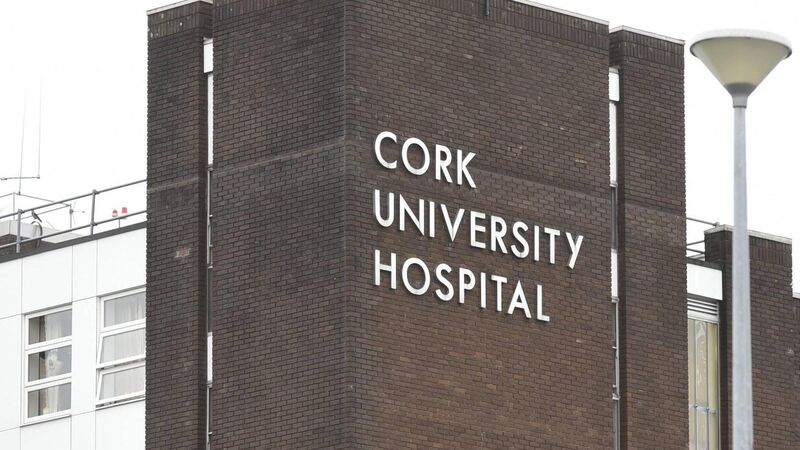Cork University Hospital among facilities 'anxious' about what's to come

Cork University Hospital (CUH) and the Mercy Hospital are among several facilities around the country that have come under pressure and activated surge capacity and contingency plans for coronavirus.
Several hospitals including Cork University Hospital and facilities in Limerick, Letterkenny and Cavan are currently “coping” with additional challenges posed by Covid-19 but remain “anxious” over what might come in the weeks ahead.
That was the stark warning issued by HSE chief executive Paul Reid at the weekly HSE briefing today, as he urged members of the public to do all within their power to reduce the spread of Covid-19.
HSE officials expressed concern over rising infection rates, which have increased from three cases per 100,000 population in late July to 190 per 100,000 population this week.
As of today, there were 238 people in hospital with Covid-19 and 29 people in intensive care.
Hospitals were “coping” at present but “extremely anxious” about what lies ahead, the HSE boss said, confirming that Cork University Hospital (CUH) and the Mercy Hospital were among several facilities around the country that had come under pressure and activated surge capacity and contingency plans.
Cavan has the highest number of Covid-19 patients in hospital at over 30, with CUH and Letterkenny hospitals having between 15 and 20 Covid patients.
“Letterkenny, Cavan, and Cork University Hospital, although they’ve made some progress this morning, they would be the ones where feedback suggests they are under particular pressure,” Mr Reid said.
The virus was impacting on all age groups, including young people, HSE officials said, appealing for everyone to reduce social interactions and comply with public health guidance.
Of 245 people hospitalised in the past two weeks, 25% were under 35 years of age and 27% were between 35 and 64 years of age and almost half were over 65 years of age.
High infection rates in the community are spilling over into the health service and nursing homes, the briefing heard, with 1,100 healthcare staff absent and a further 800 shielding from the virus.
The HSE is also seeing “incremental growth” in the number of nursing homes requiring support, with one nursing home of “significant concern” and 25 other facilities in an “amber” category.
Mr Reid said the “real lines of defence” were in everyone’s hands: “Please avoid meeting people you don’t need to meet. Definitely avoid going to other people’s homes. Keep a very clear distance from everybody you meet. Don’t congregate indoors. Follow the public health measures”.
Too early to be a trend but sometimes we need it. The number of people in hospital with #COVID19 came down last night from 234 to 214 and those in ICU held at 30. Let's all continue to put our defences up and make it a trend and turn this around. @HSELive
— Paul Reid (@paulreiddublin) October 15, 2020
Covid-19 testing capacity has increased to 125,000 tests per week and contact tracing was up by 27% in the past week but Mr Reid said no amount of capacity in beds or testing and tracing can manage Covid-19 if it is allowed to spread uncontrolled.
“There is a point at which, if the community transmission becomes so overwhelming the capacity of all our systems become hugely stretched and that means our hospital systems, ICU, and testing and tracing, so we really have to put a big urgency behind our key line of defence, which is the public,” Mr Reid said.
“That’s the one that can turn this trend around. More testing capacity, more ICU beds, more hospital beds doesn’t turn the trend around,” he added.
Chief Clinical Officer Dr Colm Henry said no health service could withstand the challenges posed by the uncontrolled spread of Covid-19: “Experience here and internationally shows that no healthcare system no matter how well developed or how well refined can withstand unmitigated transmission of Covid”.
Mr Reid and Dr Henry said there was “no comfort” in the fact that the number of patients in intensive care appeared to have stabilised in recent days and that it was “too early” to draw any conclusions.
Emergency department admissions and attendances are down and patients are urged to attend if they need care.





